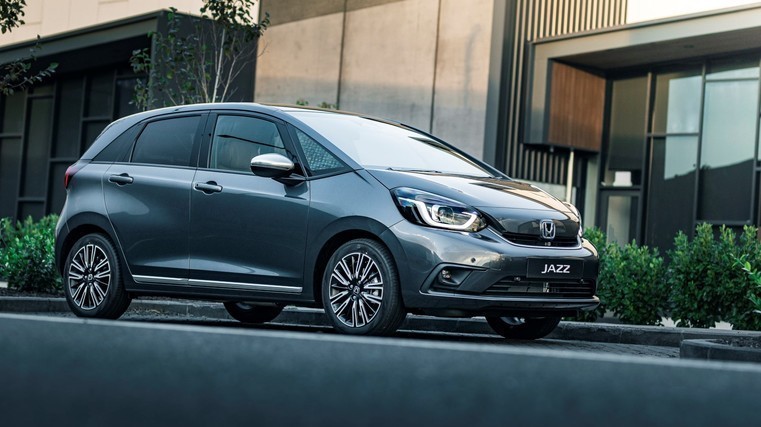Discover our cleanest marques

New light passenger vehicles and light commercials sold in New Zealand over the past year emit an average of nine per cent less carbon dioxide (CO2) per kilometre travelled than the average light vehicle registered in 2019.
The finding for sales in the year to July is part of new data released by Waka Kotahi NZ Transport Agency that reveals the impact of the government’s clean car discount programme.
However, the average CO2 emissions from light vehicles sold this year are still five per cent above the average emissions of vans and utes sold in the European Union in 2020.
The figures from Waka Kotahi also show Honda to have the cleanest fleet of vehicles sold this year, with it averaging 132gCO2/km. Its performance was partly bolstered by sales of its hybrid Jazz, pictured.
Hyundai, on 135g/km, is next on the ladder for CO2 emissions of the top 18 manufacturers by sales volume in New Zealand. The marque also recorded the largest drop in fleet emissions since 2019 after falling from 193g/km, reports Newsroom.
Suzuki on 141g/km, MG with 151g/km and Skoda on 159g/km complete the top five cleanest fleets.
Bottom of the emissions list is Isuzu with an average of 238g/km, with Ford and Ssangyong above it on 228g/km
The Waka Kotahi figures, which were supplied by Newsroom’s content partner Hyundai, also show sales of battery electric vehicles (BEVs) and plug-in hybrids (PHEVs) have nearly doubled their market share so far this year.
Such vehicles accounted for 5.9 per cent of light vehicle registrations last year, but that has grown to 10.7 per cent in the year to July.
The market shift follows the introduction of the clean car discount in July 2021, which offered discounts on certain BEVs and PHEVs when registered for the first time.
The scheme was upgraded to a full feebate in April this year with penalties or rebates applying depending on the emissions produced by a vehicle.
Next up for the industry will be the clean car standard, which is currently due to be implemented from January 1, 2023, and will set increasingly tougher targets to limit the emissions of imported vehicle fleets.





